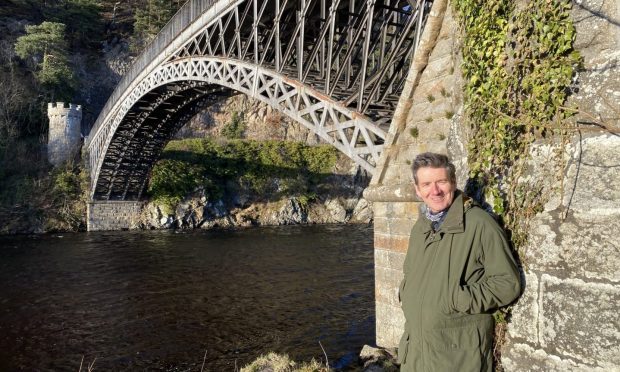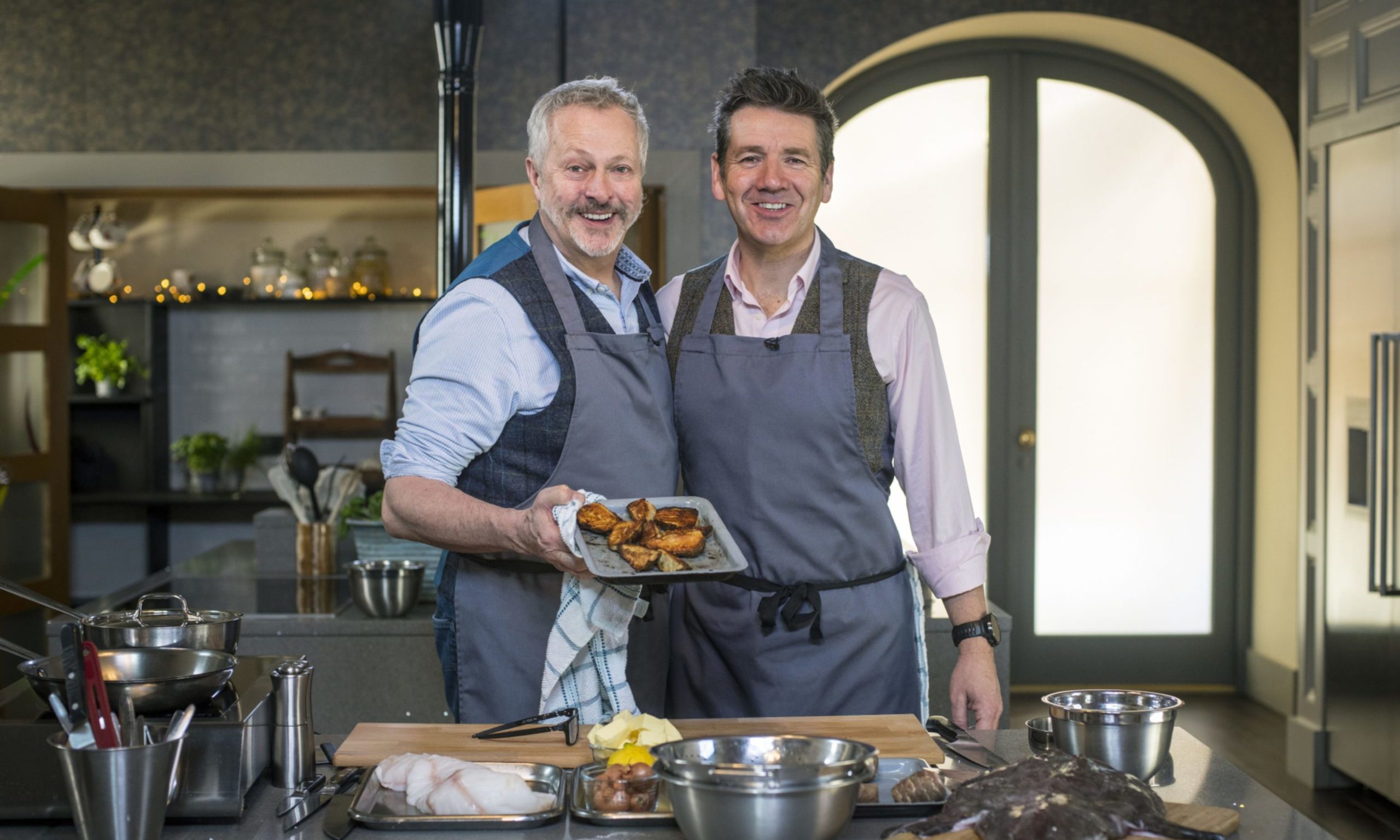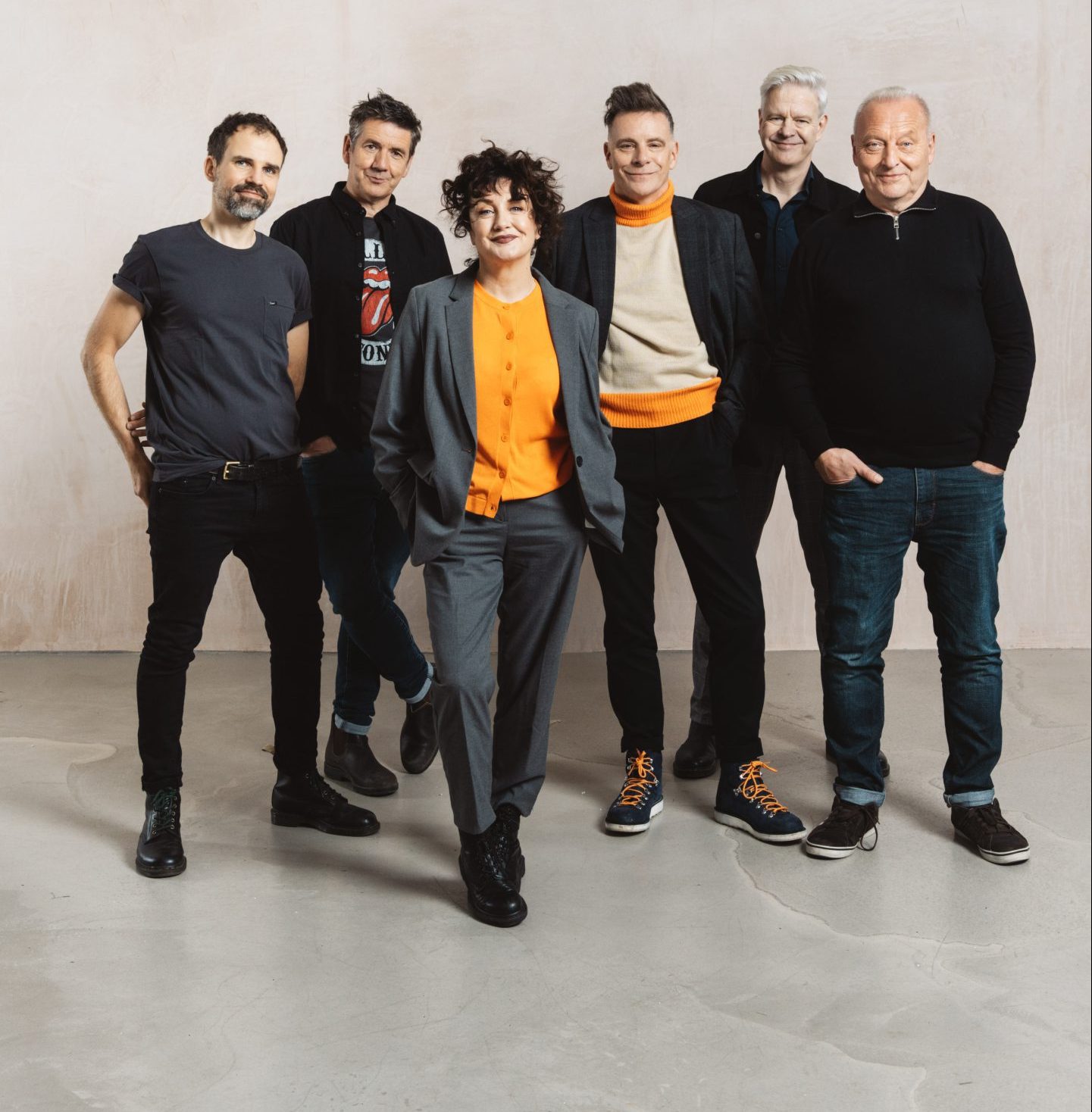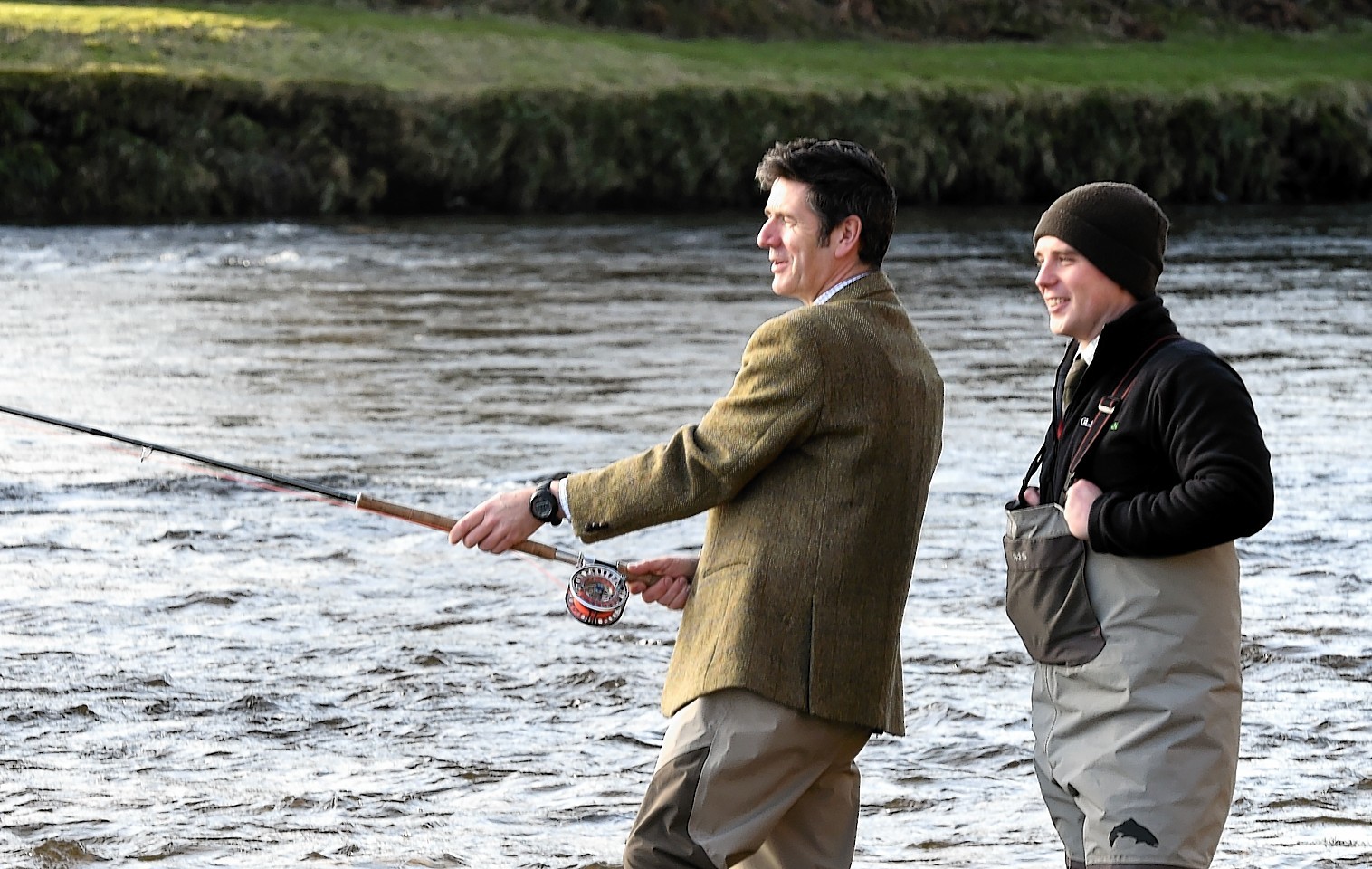It was a moment which still brings me out in a cold sweat even though it happened more than 30 years ago.
There were two assignments on the same day; interviews with Dougie Vipond of Deacon Blue and Marti Pellow from Wet Wet Wet; a brace of Scottish bands who were riding high in the charts at the same time with a juicy jukebox-worth of hits.
So what could go wrong? It shouldn’t have been a problem as long as I remembered not to confuse my sweet little mysteries with my real gone kids. And wishing I was lucky.
But cometh the hour, I put in the call to Dougie and, almost as if it happened in slow motion, uttered the words: “So, how are you enjoying life with Wet Wet Wet?”
Briefly, there was silence, as my dignity was shredded. Yet, to his credit, he had a laugh about it and made light of a situation which might have sparked a rammy.
And nothing has changed about this blithe lad’s demeanour in the intervening decades.
Dougie looking forward to new series of Landward
He’s now 57, but Dougie still has the air of somebody half that age, forever discovering new things to pique his interest. This week, he started presenting a new series – his 14th – of the BBC Scotland programme, Landward, and even as he talked about visiting Thainstone Mart in Inverurie and preparing a Speyside special [which will run next week] on the importance of the whisky and fishing industries, he was full of admiration for “amazing, dedicated” people such as Duncan Ferguson, who has worked on the river for 34 years.
And why not? After all, as he pointed out, we’re in April at the onset of another spring which, despite a harsh economic climate, offers a reminder of Scottish innovation, ingenuity and the ability to respond to adversity with inventive solutions.
‘We focus on the positives’
He said: “I love this time of year. The days are getting longer, the birds are singing, the flowers are out, Nature is blooming, and I’m getting the opportunity to travel throughout Scotland and meet so many resilient, talented people on the journey.
“I’m one of those people who needs to get fresh air and exercise or it gets me down. It’s bad if I am stuck in an office and staring at a screen for too long. Even when I am on the road, and visiting a new town, I always go looking for a tree to hug.
“That’s why the last few years have been a joy and I often remind myself how lucky I am to be going to all these beautiful places and meeting such inspirational people.
“Of course, we know that things are tough at the moment. We’re in a real financial crisis. But, as Landward demonstrates, there is still a lot of optimism and people with business ideas and visions of bringing their own success stories to fruition.
“In this series, I’m constantly amazed by how many folk of all ages are thinking outside the box. You’ll talk to somebody with a brainwave and ask yourself; ‘Why didn’t I think of that?’ But that is one of the terrific aspects of these shows: we focus on the positives.”
Still making music
Dougie has a knack for self-deprecation which underplays his contribution to so many different projects. When Deacon Blue (named after a Steely Dan song) released Raintown in 1987, critics and the public alike praised Ricky Ross’ songs.
But Dougie’s driving, urgent drumming was another reason why they could attract massive stadium audiences or strike the right mood in the Top of the Pops studio.
Similarly, when he joined forces with Michelin-starred chef, Nick Nairn, for The Good Food Guys, there was a compelling mixture of expertise and entertainment, as one of the duo prepared quality fare while the other bantered with the likes of Val McDermid, Rory Bremner, Call the Midwife’s Laura Main and Still Game’s Sanjeev Kohli.
Yet Dougie told me: “It maybe looked like I was cooking with Nick, but I just do a bit of chopping and stand next to talented people and get the reflected glory.
“It’s the same with Deacon Blue. Ricky is this incredibly gifted singer-songwriter who has branched out in so many different directions and done so many things and yet here we are, 37 years after Raintown, and we are still making music together.
“I’m just the man at the back with the drum kit.”
‘I didn’t know what I was going to do’
This isn’t the full story, of course. When Deacon Blue split up in 1994 – a move sparked by Ross, who later described it as a bad mistake – Dougie admits he wasn’t sure how his future might unfold. After almost a decade of international success, where the Scots had grown accustomed to packing out venues and selling records, what was coming next?
As he said: “I was only 27 years old, I didn’t know what I was going to do, and it did feel as if the rug had been pulled from under my feet. But I was ready to learn and, gradually, I started covering different things, including sport and leisure pursuits.
“And I think that versatility is one of the reasons why the band [who reunited in 1999] are still together and we’ve recently toured Australia, New Zealand and South Africa.
“Ricky is….well, Ricky has so many projects on the go. Lorraine McIntosh is an actress [who had a key role in the last series of Shetland]. And [keyboardist] James Prime is a music lecturer at the University of West of Scotland.
Real Gone Kid creates the biggest noise
“So we have all these other interests which means we have to take time out to arrange any concerts or tours. Almost the only week of the year when I can’t commit to the band is during the Royal Highland Show, which is something Landward can’t miss.
“But, thanks to the flexibility of the BBC and other places, we are still allowed the chance to join forces, prepare new material and go round the world, and we were all blown away by the reception to the concerts Down Under and in South Africa.
“Things have definitely changed since the pandemic. You can see that at gigs where the crowds really want to have a good time, enjoy themselves and be having fun again.
“They pay a lot for their tickets, so we have a big responsibility to work our backsides off to make it worth their admission money. And we do and there has been a brilliant buzz between us and the audience during the shows in the last two years.
“Dignity always gets the crowd going as does Fergus Sings the Blues, but perhaps the one that creates the biggest noise is Real Gone Kid.”
When is Landward on BBC?
Dougie doesn’t take himself overly seriously, but he’s too modest about his role as one of Scotland’s classic lad o’pairts who can turn his hand to almost anything.
He was incredulous when I asked if it ever became a chore to rehash the hits, not least because he and his colleagues are clearly addicted to the thrill of the live experience.
And the message was: why stop when you are having the time of your life?
Landward is on BBC Scotland on Thursday nights at 8.30pm.
Five questions for Dougie Vipond
- What book are you reading? Beton Rouge by German crime writer, Simone Buchholz. She’s a great writer.
- Who’s your hero/heroine? Billy Connolly.
- Do you speak any foreign languages? I speak European. On trips abroad, I’ll come up with sentences that contain, French, German, Spanish, and/or Italian words with very little comprehension…much to the fury and embarrassment of my three boys.
- What’s your favourite music/band? This changes daily, hourly even. It feels like I’m really baring my soul, so here goes. Little Feat…no, David Bowie…or possibly Joni Mitchell?
- What’s your most treasured possession? My indecisiveness.





